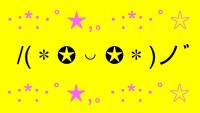
Hooray for Hollywood
By G. Miki Hayden
Instructor at Writer's Digest University online and private writing coach
firstwriter.com – Sunday July 28, 2019

The movies didn't spoil my books. They're still on the shelves.—James M. Cain, author of The Postman Rings Twice
One writer told me that she had been advised to hold onto the film rights to the book she’s currently making an effort to place. I looked at her blankly. Discussing the sale of film rights to an unsold book is a pretty minuscule—not to say completely irrelevant—consideration. Sell the book first. Moreover, very few books are optioned for film, much less actually turned into one. That said, of course you want to keep whatever rights you are able to, or as large a percentage of them as you can, but never let that be a dealbreaker.

Publishizer Is Building An International Virtual Agency
publishersweekly.com – Saturday July 27, 2019

Can a nomadic Australian tech entrepreneur transform literary agenting? Guy Vincent thinks he can. Vincent says that in 2013 he was living in Singapore and working for Tien Wah Press, one of the region’s largest printers, when his friend Jackie Treagus asked for help publishing her book—a pocked-size cookbook for adventurers titled The Backpacker Chef. Vincent helped Treagus raise $5,220 through crowdfunding, garnering 522 preorders, and thus Publishizer was born.
Fast forward six years and Publishizer has become, Vincent says, “the world’s first crowdfunding literary agency.” He is speaking via phone from Amsterdam, where he lives after moving from Singapore to Bali, then Peru and New York City. The company is based in the Netherlands due to a $420,000 investment from Netherlands-based Arches Capital, which built on an earlier $100,000 investment from 500 Startups, a startup accelerator in Silicon Valley.
Initially, Publishizer launched its own crowdfunding platform to fund books that would then be self-published, taking 5% of the money raised as a fee for the service. As the company grew, it began seeing that publishers were interested in acquiring books that had garnered more than 500 preorders on the platform and began placing books with publishers on behalf of authors. Today, Publishizer takes a fee of 30% of the crowdfunding campaign’s earnings, but it gets no cut of any ensuing publishing deal, and authors are also free to sign up agents and publishers on their own.

Buchwald Becomes Second ATA Literary Agency to Sign Writers Guild Agreement
hollywoodreporter.com – Saturday July 27, 2019

Mid-tier talent agency Buchwald has become the second literary agency to break ranks with the Association of Talent Agents and sign a so-called franchise agreement with the Writers Guild of America, just three days after the WGA signed a smaller shop, Kaplan Stahler, and three weeks after the guild sidelined the ATA with a cease-and-desist letter that ended joint talks.
The news, which broke Thursday in a WGA member email, marks a victory for the union in its campaign to reshape agency business practices, particularly around packaging fees and affiliate production, and is likely to increase pressure on other mid-tier firms to sign as well.

WGA Launches Staffing And Development Platform For Agentless Writers
deadline.com – Friday July 26, 2019

The WGA has launched its new Staffing and Development Platform to help writers without agents find work. The platform is part of the guild’s ongoing efforts to outlast the talent agencies in its standoff with the Association of Talent Agents, now in its 104th day.
Details of the platform were outlined to guild members in a new WGA video featuring WGA West board members Angelina Burnett and Michele Mulroney, who also serve on the agency negotiating committee.
“We’re consolidating the tools already in use, like the portal and the weekly memos with newly developed tools and we’re calling it the Staffing and Development Platform” Mulroney said. “This platform will provide all sorts of ways for producers and writers to share and access information about one another. It will help connect you to open writing assignments and development opportunities.”

Is the Internet Making Writing Better?
newyorker.com – Friday July 26, 2019

A common refrain from writers on Twitter is that writing is hard. Often, this insight is accompanied by the rueful observation that tweeting is easy. This is, of course, the difference between informal and formal expression, between language that serves as a loose and intuitive vehicle for thought and language into which one must wrestle one’s thought like a parent forcing his squirming kid into a car seat. We’ve long had both formal and informal modes of speech. The first pours from political orators; the second winds around friends at a bar. But, as the linguist Gretchen McCulloch reveals in “Because Internet: Understanding the New Rules of Language,” her effervescent study of how the digital world is transfiguring English, informal writing is relatively new. Most writing used to be regulated (or self-regulated); there were postcards and diary entries, but even those had standards. It’s only with the rise of the Internet that a truly casual, willfully ephemeral prose has ascended—and become central to daily life.
McCulloch begins with a taxonomy; different cohorts of users have different linguistic tells. “Pre Internet People” (think grandparents) tend to avoid acronyms like “ttyl”—mostly because they don’t know acronyms like “ttyl.” “Semi Internet People,” who logged on, in the late nineteen-nineties and early two-thousands, as adults, are more likely to type “LOL” than “lol”; they don’t view digital conversation as the place for tonal subtlety. “Full Internet People,” who grew up with AOL Instant Messenger and joined Facebook as young adults, are fluent in text-speak but perhaps less steeped in the grammar of newer platforms like Snapchat and WhatsApp. (McCulloch identifies a source of mutual misunderstanding between Full Internet People, who “infer emotional meaning” in symbols like the ellipsis, and Semi Internet People, who perceive such additions as straightforward bits of sentence structure.) Finally, there are “Post Internet People,” who joined Facebook after, rather than before, their parents. They’re the ones to watch: the digital avant-garde.

Abrams Artists Lit Agents Brad Rosenfeld, Paul Weitzman & Karen Kirkland Exit to Launch New WGA Signatory Agency
deadline.com – Thursday July 25, 2019

Veteran literary agents Brad Rosenfeld and Paul Weitzman are leaving Abrams Artists Agency after a 4.5-year stint as VPs and co-heads of the literary division. Partnered with fellow Abrams lit agent Karen Kirkland, the trio have launched a new agency, Culture Creative Entertainment, which has become a WGAsignatory, signing the guild’s new franchise agreement.
According to the principals, CCE will initially focus on writers and directors but will expand to include other areas of representation as they grow.
The move comes more than 100 days into the standoff between the Writers Guild of America and the Association of Talent Agents, which led to more than 7,000 writers firing their agents, including those represented by Abrams Artists.
New Magazine Listing
firstwriter.com – Wednesday July 24, 2019
Publishes: Fiction;
Areas include: Fantasy; Sci-Fi; Short Stories;
Markets: Adult
Publishes speculative fiction stories from 100 to 1,500 words, including science fiction, fantasy, slipstream, etc. Send submissions through online submissions system.

Crime writers mystified by Colm Tóibín’s criticism
irishtimes.com – Tuesday July 23, 2019

Colm Tóibín aggravated a long-standing literary sore point last weekend when he told a Guardian interviewer: “I can’t do thrillers and I can’t do spy novels.”
Asked which books he felt were most overrated, he said: “I can’t do any genre-fiction books, really, none of them. I just get bored with the prose. I don’t find any rhythm in it. It’s blank, it’s nothing; it’s like watching TV.”
He does not, in fact, watch television. “I don’t have a TV. Everyone talks about the golden age of American TV but it’s done nothing for me.”

'Ridiculed and not taken seriously': why fan fiction deserves more credit
smh.com.au – Saturday July 20, 2019

When Astrid Scholte was a teenager she was enthralled by the science fiction television series Farscape, a sweeping intergalactic space opera. She couldn't get enough.
The internet was a smaller universe in 2000, but online Scholte discovered a trove of fictional stories inspired by the characters and world of the show, written by other obsessed fans.
Soon, Scholte started studiously writing her own "episodes" to broaden the dimensions of her favourite television show.
"I didn't realise what I was doing was fan fiction. I did not realise there was a term distinctly defined back then," Scholte says.
These days, Scholte receives her own notes from fans after publishing her debut young adult fantasy novel Four Dead Queens in March.

Audible's Captions Program Stirs Fears, Frustration Among Publishers
publishersweekly.com – Saturday July 20, 2019

“Outrageous” and “copyright infringement” were the first two (unsolicited) emails PW received from independent publishers when word of Audible’s new program to run text along side its audiobooks began to spread. The program, called Captions, which requires the company to transcribe audio to text, was highlighted in a story in USA Today with a headline touting that Audible is looking to let customers “ ‘read’ an audiobook while [they] listen.” While the company disputes that description, saying Captions is not at all akin to the act of reading, publishers, literary agents, and organizations representing authors are skeptical.
While Audible said in a statement that Captions “does not replicate or replace the print or eBook reading experience,” publishers are unconvinced. “There are real copyright issues here and authors, publishers, and agents should review and clarify their positions,” said Dominique Raccah, CEO of Sourcebooks. “It seems unlikely that Audible was granted these rights.”
Get the free newsletter | Submit a news item or article | Get Writers' News for your website





